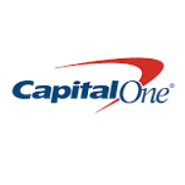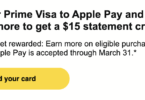(Update 11/3/25: In a recent change, Capital One now does adjust your autopay. Updated below.)
A lot of people set up auto-pay on their credit cards to avoid the possibility of ever paying a late fee. That works well for ‘normal people,’ but for us complicated folks it’s not always so simple.
What happens if you make a partial payment before the auto-pay kicks in to free up some credit limit or to use up a money order or any other reason. Does the bank automatically adjust the auto-pay and only pull the remaining amount owed on the bill? Or do they proceed to pull the full amount of the statement bill?
Note: if you pay off the balance or part of it before the statement closes, the bank will never pull more than the statement bill. A lot of people like to pay off the balance or most of it before statement close so that it won’t negatively impact their credit score. (This issue is only for personal cards; for most business cards there no reason to pay off before statement close.)
It’s vital to know this info since if you have a $10,000 statement balance and manually pay off $8,000, and the bank proceeds to pull the full $10k, you might end up with overdraft fees from your bank if you don’t have a full $10,000 in your checking account.
This is an issue I’ve looked into in the past, and just got a kick in the pants from @milesperday to do a post about. I personally don’t use auto-pay at all; just posting data points that I’ve seen from others.
Contents
Amex
Amex will adjust the auto-pay and only pull the amount due.
Bank of America
A couple of data points (1, 2, 3) indicate that Bank of America will proceed to do the auto-pay for the full statement balance, even if you pay it off partially or completely manually.
Other data points indicate (1, 2) the reverse that if you make a payment with BofA – even a partial payment – they’ll cancel the auto-pay completely.
BofA does seem to be able to refund the payment directly back to your bank account (no need for a physical check), so that’s good. On another note, everyone talking about BofA auto-pay mentions that it’s a royal pain to set up.
Barclay’s
Barclay will proceed to do the auto-pay for the full statement balance, even if you pay it partially or totally beforehand (1). Reportedly, they now do adjust the auto-pay for payments sent in after the statement was generated (1).
Capital One
Capital One will adjust the auto-pay and only pull the amount due. (For years Capital One would not adjust, but in October 2025 they sent out notice of this update that they would now adjust.)
Capital One will always proceed to do the auto-pay for the full statement balance, even if you make payments beforehand (1, 2, 3, 4). One data point says (1) the reverse.
Chase
Chase will adjust the auto-pay and only pull the amount due (1, and heard from a friend).
Citi
Many data points indicate that Citi does adjust your auto-payment if paid partially or fully (1, 2, 3, 4, 5, 6). (counter data point)
Discover
Discover will cancel the auto-pay when fully paid up beforehand (2, 3)., and will adjust the auto-pay when partially paid beforehand (1).
Synchrony
Synchrony will adjust your auto-pay based on recent payments (1).
Target Credit Card (TD Bank)
The Target card will proceed to do the auto-pay for the full statement balance if you pay it partially before, but only if you still have a balance on the card in the amount of the auto-pay. They will never pull more than your total balance and bring your card balance into negative. (1, 2)
Presumably, all TD Bank auto-pays will work the same.
US Bank
US Bank will proceed to do the auto-pay for the full statement balance, even if you pay it partially before. If you pay in full they don’t pull any payment (1). Presumably the Fidelity credit card and other Elan cards will work like US Bank cards.
Wells Fargo
Wells Fargo will adjust the auto-pay and only pull the amount due (1).
Summary
To summarize, Citi, Chase, Amex, and Discover adjust your auto-pay to reflect recent payments. Other banks might pull the full amount even if you paid partially. In some cases, they’ll only do this if your balance won’t go negative (i.e. they’ll never pull more than you actually owe at the moment of the pull), and in some cases they won’t do the pull if you paid off the full amount since the statement closed.
Be careful there with your auto-pays! If you do have a data point to add, try to be as clear as possible, including if you paid off completely or partially and when it happened.






